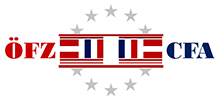The Western Balkans and the European Union four years after the launch of the Berlin process: Perspectives in sight, accession in reach?
Kosovo in Europe: Ten Years of Contested Statehood in unsettled neighbourhood
February 27, 2018Progress towards a common EU-Defence Policy?
March 20, 2018The Western Balkans and the European Union four years after the launch of the Berlin process: Perspectives in sight, accession in reach?
A roundtable in the framework of the Western Balkans Reflection Forum initiative & run-up to the Austrian Presidency of the Council of the EU
19 April 2018, 17h00-19h00
Austrian Embassy in Germany, Stauffenbergstraße 1, Berlin
The 2017 Western Balkans Summit of Trieste was the fourth annual conference held in the framework of the Berlin process. It was attended by the heads of state or government, foreign ministers and the ministers of economy of Albania, Bosnia and Herzegovina, Kosovo, Macedonia, Montenegro and Serbia, Germany, Austria, France, Italy, the UK, Croatia, Slovenia, as well as by the EU High Representative Mogherini and Commissioner Hahn. The Italian hosts also invited the incoming Bulgarian EU Presidency to the meeting, under the auspices of which the forthcoming EU-Western Balkans Summit will be held on 17 May 2018. After dropping off the radar screen for at least a decade, the Western Balkans seem to be back on the EU’s agenda.
The Berlin process has certainly contributed to this achievement. But its initial objective, beyond keeping the impetus of European integration, was to further “real additional progress” in the region. While the Summit of Trieste reconfirmed the EU’s commitment to support Western Balkan’s path into the EU, the implementation of previous commitments by both the EU and Western Balkans’ governments remains far from straightforward. The Western Balkans Reflection Forum held in Trieste in June 2017 has highlighted key issues regarding the implementation of these commitments as well as new challenges, rendering EU accession prospects hardly predictable, despite the second Juncker Declaration and the new enlargement strategy of February 2018.
This roundtable, organised by the Austro-French Centre for Rapprochement in Europe, Centre international de formation européenne and German Institute for International and Security Affairs in cooperation and with the support of the Austrian Embassy in Berlin, Austrian Institute for International Politics, Institut français des relations internationales, Istituto Affari, Internazionali and Balkan in Europe Policy Advisory Group will exchange views on current developments in EU-Western Balkans relations: What opportunities does the Berlin process carry in its current approach and what perspectives can it be given after the London Summit of July 2018? How successful has it been in maintaining the impetus of a slowed-down accession process? What conclusions can we draw from the new EU enlargement strategy and what expectations can we hold from the EU-Western Balkans Summit, planned next May of Sofia? How does the Berlin process and its new elements intersect with the EU’s enlargement strategy and political agenda? Are the accession perspectives of Western Balkans potential and actual candidate more in sight? Is 2025 a credible date? What hurdles can we expect and how to thwart them? What implications does the growing engagement of non-Western powers (Russia, China, Turkey) in the Western Balkans have on their European integration path?
